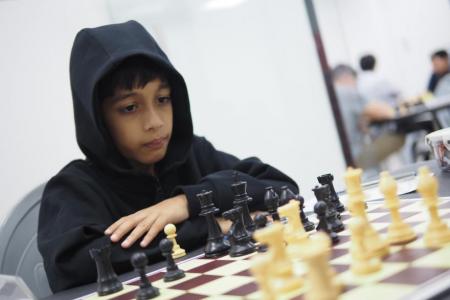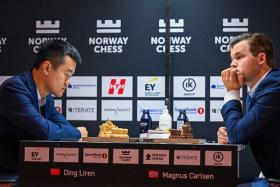It’s not easy raising a champion
Recently, Singapore resident Ashwath Kaushik became the youngest to beat a grandmaster in classical or regular chess. The young contender was just eight years and six months old.
Many parents would surely rejoice over such triumphs because we want our children to be the best they can be.
In Singapore, that could also mean becoming a world-class pianist or violinist, a Grand Slam champion or the next Joseph Schooling or Joscelin Yeo.
NRI parents would probably add a cricket champion into the mix.
There is no doubt these accomplishments take a lot of time, effort and commitment.
Ashwath practises his chess moves about two hours each weekday, and six to seven hours daily on weekends.
He also travels overseas almost every month for tournaments and has played games that can last up to almost six hours each. That alone is an eternity for many eight-year-olds.
However, his father, who is a managing director of a management consulting firm, is not pushing the young star. He told the media after his son’s achievement: “The key is to have balance, and not set unrealistic timelines and records because the reality is that the kid is not pursuing it full-time.”
Unfortunately, some parents can get very pushy. There have been instances of fathers with stopwatches along the lengths of swimming pools pushing and urging their children to swim faster.
Sports coaches say the stress could quickly become too much for kids to handle.
Then there is the misconception that early success guarantees continued success, despite many cases where a child prodigy fails to live up to expectations.
Attaining and maintaining high performance standards especially in sports depend on several factors – physical ability, mental aptitude and, crucially, their “love of the game”.
When parents make the activity seem like work, the child is going to see it in the same way, and may not enjoy it any more. When passion diminishes, all is often lost.
Parents would do better by supporting their children in something they love doing.
As author Tara Bianca observed, there is a stark contrast between the child who has been forced to learn to play the piano and the child who is deeply inspired to learn music.
Get The New Paper on your phone with the free TNP app. Download from the Apple App Store or Google Play Store now


